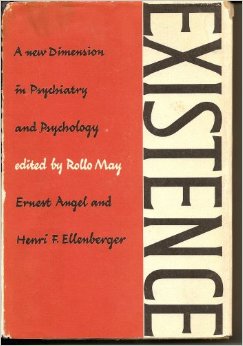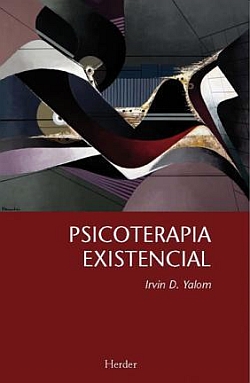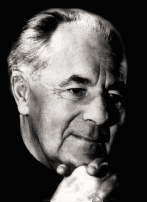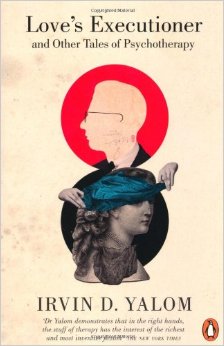The origins of the school
T
he main difference of existential therapy with respect to the rest of the psychological schools is their source of origin: this form of psychotherapy is not inspired by the so-called positive or experimental sciences, nor from a medical career, but out of pure philosophy…
Pure, and as we will see below, very strict with respect to its criteria for admission. In fact, all those who believe they have the correct answer for whatever question, albeit difficult or easy about life are not welcome, neither the dogmatic nor the sectarian. The existential point of view is not at odds with science nor distrusts science itself, but what it mistrusts is the way in which for decades, the scientific method has pretentiously claimed its exclusivity when referring to the complex types of human relationships at a personal level and their surroundings. Life is not a matter reserved only for specialists. As long as we breathe, life belongs to everybody.
At the height of the 19th century, the time in which we could place the birth of psychology as a more or less autonomous Science (the end of the century in the case of psychoanalysis), man –as said generically without meaning to be nonexclusive- did not begin to feel overwhelmed by the difficulties of coping with life. The concerns about the soul searching issues came from, at least , the time of Plato. And for many others, since the remote times of the pre-Socratic philosophy, or even before if we slide without too many prejudices towards the East, geographically and culturally speaking.
In fact, just thinking about it briefly, all men and women share a deeply perplexed feeling when faced with the enormity of existence and the personal oppressive sensation of smallness and vulnerability. But even so, there is no need to call them ‘existentialists’; just take a stroll through the countryside on a stormy day.
When we talk about philosophy in this context, we refer to what could be called the “Vitalist branch” of that discipline: the point of view that places at the centre of all questions, the issue about life as lived by actual human beings, with names and surnames and specific circumstances. Even though the pantheon of illustrious existential men is well known to many, we will make a concise inventory for the less familiar, of the lineage of scholars specialising in the human being. Without wishing to be boring, and much less overwhelming, we cannot not cite the names of these illustrious figures. They are so magnificent. And, at the same time close. What was that radio catchphrase? ‘Music from yesterday, from today and from always….’
From their beginnings, like three shining stars of the 19th century, we have Soren Kierkegaard, Arthur Schopenhauer and Friedrich Nietzsch, although it is not uncommon to also include in this list, purely for emotional reasons, the distinguished Russian novelist Fiodor Dostoyevski.
From the 20th century, existentially speaking, one author clearly rises above all the rest: Martin Heidegger. Beside this titan, direct heir of the phenomenology of Edmund Husserl, in a motley hodgepodge of Christian, agnostic and atheist thinkers, whose detailed enumeration we will save the reader, we must include however and specifically a few man-sized giants, giants for their humanity, human beings of a status rarely achieved: José Ortega y Gasset , Albert Camus, Jean Paul Sartre, Gabriel Marcel, Martin Buber, and Paul Tillich. All these thinkers –of whom we would also have to include, not out of politeness, but out of respect for their intellectual esteem, Simone de Beauvoir and Hannah Arendt– who constitute the privileged cast of existential orientation or existentialist philosophers.

Their themes for reflection and debate? Existence of course, the inevitability of death, being, anguish, freedom, and the limits of human experience: in short, a life lived with courage and without subterfuge. The existentialist posture does not seem to be the most unworthy with which to face this eventful time in which we are living, at the start of the 21st century. We may be forced to look at ugly things, even horrible – who dares to predict what the future will bring us- but we don’t have any obligation to remain silent in front of what we witness with our own eyes.
The development of existential philosophy and psychology
T
he core of the Existentialist tenant is well known in philosophical circles: existence precedes essence. This means that there is no “human nature model” that one should try to make the best happen for oneself, but that the vital and concrete experience of each one of us determines what one is and who one might be. Inevitably, we are thrown into a world that has welcomed us with a mixture of ambiguity and pressure. Paradoxically, the only thing that ‘existence’ imposes on us is the obligation to be free: we cannot stop doing something with our lives.
The outbreak of World War II cut off all such conspicuous reflections for a long time. Leaving behind a bleak landscape, the most brilliant authors of philosophy, psychology and post-Freudian psychoanalysis, migrated in successive waves to the United States from Europe. They fertilized the cultural life of the young continent with new and vigorous ideas saved in extremis from the unleashed barbarism. Others stayed, others did not survive.
In the aftermath of the defeat of Hitler, thinkers from both sides of the Atlantic continued on with their research work, although sadly, they could not share their findings using a fruitful exchange of emails. They were separated by a sea of doubts and around half a century away from the emergence of the Internet. However, it was neither just a few nor the odd shrewd ones who realised, both in Europe as in North America, the vast territory that was shared between them and other related disciplines such as: philosophy, psychology, and psychopathology. Existentialism was fashionable in the European academic and psychiatric world (Karl Jaspers) during several consecutive decades, whilst in the United States Freudian psychoanalysis was by far the most popular.
 In this context, an important detail -perhaps essential- that we cannot fail to mention is that until the sixties of the last century, the use of psychoactive drugs for ‘selective action’ to treat mental suffering was not extended. This produced a radical turn in the history of psychological and psychiatric assistance. Before Valium, Librium, Largactil and lithium salts, the main therapeutic tool of the psychologist or psychiatrist was the word, the simple, bare and succinct word. From then on, it was no longer crucial to thoroughly understand the mental problems of a patient and professionals began to resign themselves to ‘treatment’. A slogan became fashionable: ‘If you cannot understand something, or someone, you can always try to explain them to someone else.’
In this context, an important detail -perhaps essential- that we cannot fail to mention is that until the sixties of the last century, the use of psychoactive drugs for ‘selective action’ to treat mental suffering was not extended. This produced a radical turn in the history of psychological and psychiatric assistance. Before Valium, Librium, Largactil and lithium salts, the main therapeutic tool of the psychologist or psychiatrist was the word, the simple, bare and succinct word. From then on, it was no longer crucial to thoroughly understand the mental problems of a patient and professionals began to resign themselves to ‘treatment’. A slogan became fashionable: ‘If you cannot understand something, or someone, you can always try to explain them to someone else.’
The birth of existential psychotherapy in the United States.
I
n the 1960s, the United States woke up to a real revolution in the field of mental health, coinciding with a state of national turmoil linked to the movements for civil rights.

Existencia 1958, Rollo May
On the one hand, the so-called humanistic therapy came to light in the hands of authors such as Carl Rogers and Abraham Maslow. On the other hand, through the public texts of the European phenomenologists by the father of existential psychotherapy in the U.S.A., Rollo May. He presented the American academic circles with a collection of chosen phenomenological texts with his own introduction in a thick manual that was to become the founding text from which the American existential movement was based: Existence.

Psicoterapia Existencial, Irvin D. Yalom
But it was without a doubt a disciple and patient of Rollo May who would bring about the miracle to convert into a phenomenon both academic and social, a discipline, previously obscure and in a minority position: existential therapy. We are referring to Irvin D. Yalom, whose literary texts over time ended up as authentic bestsellers, both in the United States and Europe, but with a particular impact in English-speaking countries. Yalom, actually, managed the feat of translating into an intelligible language the prose that was sometimes hard to understand or directly incomprehensible, from the greatest existentialist authors of the old continent. In consecutive chapters in his book ‘Existential psychotherapy’, he tackled the major issues linked to the resurgent movement of the Vitalist inspiration: the attitude towards death, responsibility, freedom, will, isolation, and the meaning of life. Somehow, Yalom laid the foundations of the subsequent evolution of this form of therapy, not only in the United States, but also to some extent, in Europe.
Existential therapy in Europe
T
he authors that Rollo May introduced into the United States through the cited volume, Existence, belonged, despite their formal differences, to the school of thought known as the European phenomenological psychiatry. Amongst them one would have to highlight Ludwig Binswanger, who tried -with only relative success– to bridge a connection between Freudian psychoanalysis and the Heideggerian analysis of Dasein. In the anecdotal field, Binswanger stands out -in contrast to Jung, Adler, Otto Rank- was the only psychoanalyst of importance who did not end up breaking relationships with Freud in a stormy way. The figure of Viktor Frankl, deserves a special mention as creator of logotherapy, a kind of existential therapy focused on the search for vital and personal meaning.
Returning for a moment to the decades prior to the birth of the Internet, it remains intriguing to consider that authors who lived spread out in rather remote European countries were investigating at the same time, precisely the same theoretical and philosophical issues: time, space, anxiety as a vital experience, sense of guilt, the experience of bodyhood. This gave rise to an unexpected phenomenon –however this should not surprise us, because all shared the same endorsement to Phenomenology-, that each country housed a number of first degree researchers and thinkers, who were completely isolated from their European colleagues who were immersed in the same intricate issues. Even at the risk of exhausting the reader, we must name some leading figures of the European mid-century scene: Eugène Minkowski, Maurice Merleau-Ponty (France), Igor Caruso (Austria), Frederik Buytendijk (Netherlands), Viktor von Gebsattel (Germany). Spain was unfortunately, submerged in the everlasting night of Francoist politics and culture, and we can only highlight the figure of Luis Martín Santos, who died in a tragic and premature manner in the early 1960s. His monograph on Dilthey and Jaspers and his influential novel “Time of silence” speak with unavoidable melancholy of what might have been and was not.

Medard Boss
The doctor and Swiss psychiatrist Medard Boss, author of some of the essential works of existential analysis, deserves a special mention. Unfortunately, only a small fraction of his books are translated into Spanish, which makes it difficult to fully appreciate his contribution. We principally highlight here his “Existential Foundations in Medicine and Psychology”, the magnum opus of the central European author, but we must also mention, even if only in passing, his study of the world of dreams from the phenomenological perspective, and the famous Zollikon seminars, that fortunately, in this case, are available for Spanish readers in the magnificent translation by Angel Xolocotzi.
Current situation of existential psychotherapy in the world
T
he proof is in (eating) the pudding: in the month of May 2015 the 1st World Congress of Existential Therapy in London, will take place, and unless anything untoward happens, with assistance of ‘la creme de la creme’ of professionals and the busiest theoreticians of this philosophical- psychotherapy school of thought.
It is really strange but on a cyclical basis, some expert, any outstanding academic authority, some prominent essayist at the forefront of thinking, issues Existentialism the death certificate, declaring henceforth its extinction. Something similar happens in the field of literature with “novels”. It is always a good time to declare Existentialism obsolete. It always seems necessary to break from conventional narrative and write something different from the typical and often read novel… There is so much to say about the reliability of connoisseurs, of the experts and visionaries who teach lessons from dawn ‘til dusk… that one feels obliged to slowly and repeatedly explain things step by step.
In conclusion, Existential Therapy: Is doing just fine, thank you.
In conclusion, Existential Therapy: Is doing just fine, thank you. We could even say that it is a ‘young and emerging’ discipline, especially in Latin America and in the Anglo-Saxon countries, although the May 2015 committee Conference Organizer mentioned that the movement appears to be booming virtually worldwide.

El Verdugo del Amor, Irvin D. Yalom
Without a doubt, the epistemological and literary contribution of Irvin D. Yalom has been instrumental in bringing about this state of affairs, among other reasons because his work shows that the usual accusations hurled against existential therapy as an obscurantist and abstruse activity are unfounded. Obviously the theoretical substrate from which Existentialist theory is constructed -speaking of Husserl and Heidegger and in general, the European phenomenologists of the last century- it is not a particularly palatable dish for delicate stomachs. However, the practise of the existential psychotherapy as highlighted without going any further, in the texts of Love´s Executioner (by Yalom) does not have to be ambiguous, neither especially dark nor, as shown in the example, incomprehensible. On the contrary, it follows that the literary narration in a dialogue format seems more and better adapted to the description of a humane setting between patient and therapist than any attempt to give an objective or academic description.
This is the real thing: with existential orientation therapy everything happens in the light of everyday and ordinary language
In the formal development of a therapeutic existential type relationship convoluted concepts or esoteric doctrines are never mentioned; neither is it explained to the patient at any time that phenomenology means calling things by their name, nor are they informed that psychopathology (according to phenomenology itself) is the science that studies loneliness. We do not speak about Heidegger, nor mentioned Sartre or Camus… This is the real thing: with existential orientation therapy everything happens in the light of everyday and ordinary language, the familiar use of verbal communication. At no moment should one have to carry out an act of faith or a statement of loyalty to the principles of the sacred practise. What is said between patient and therapist is all that there is; everything that happens in a therapeutic existential type relationship therefore derives from co-working in a ‘team’: a joint undertaking to cure wounds inflicted by loneliness or a destructive relationship.


